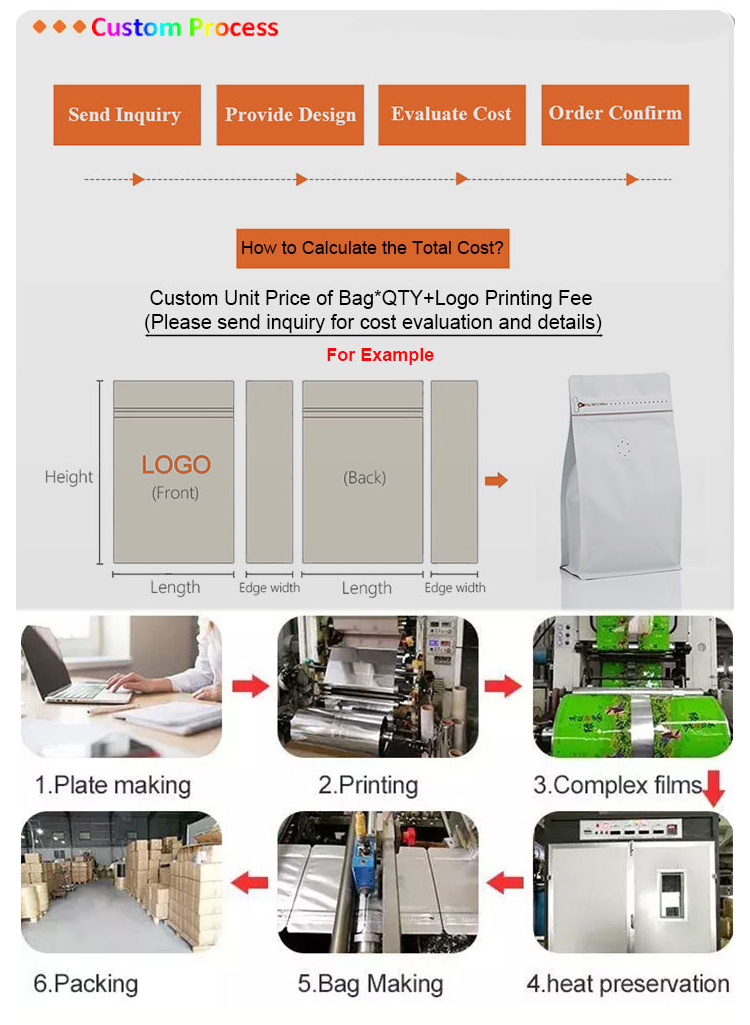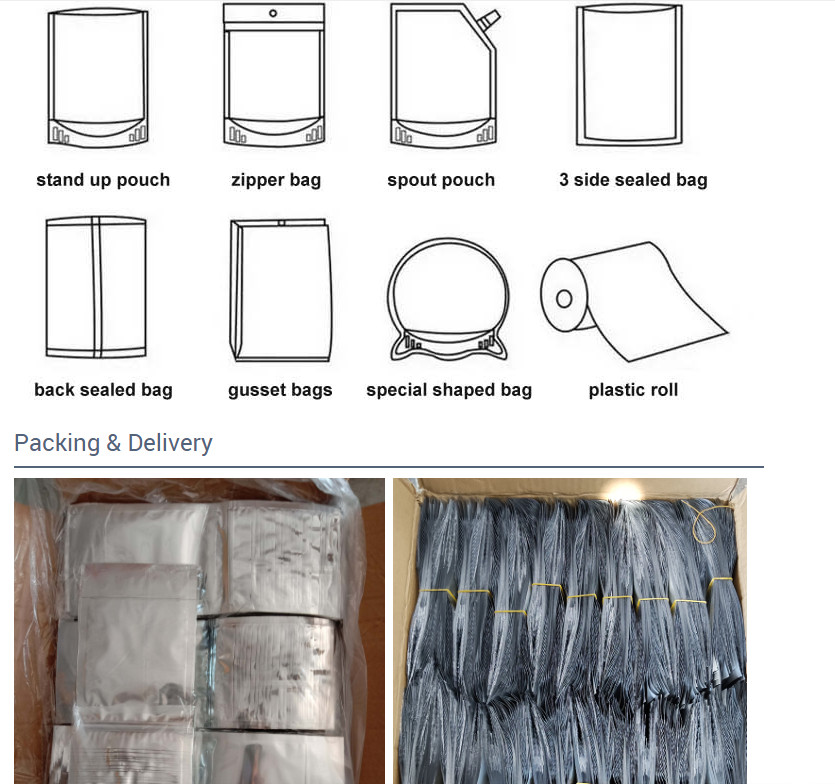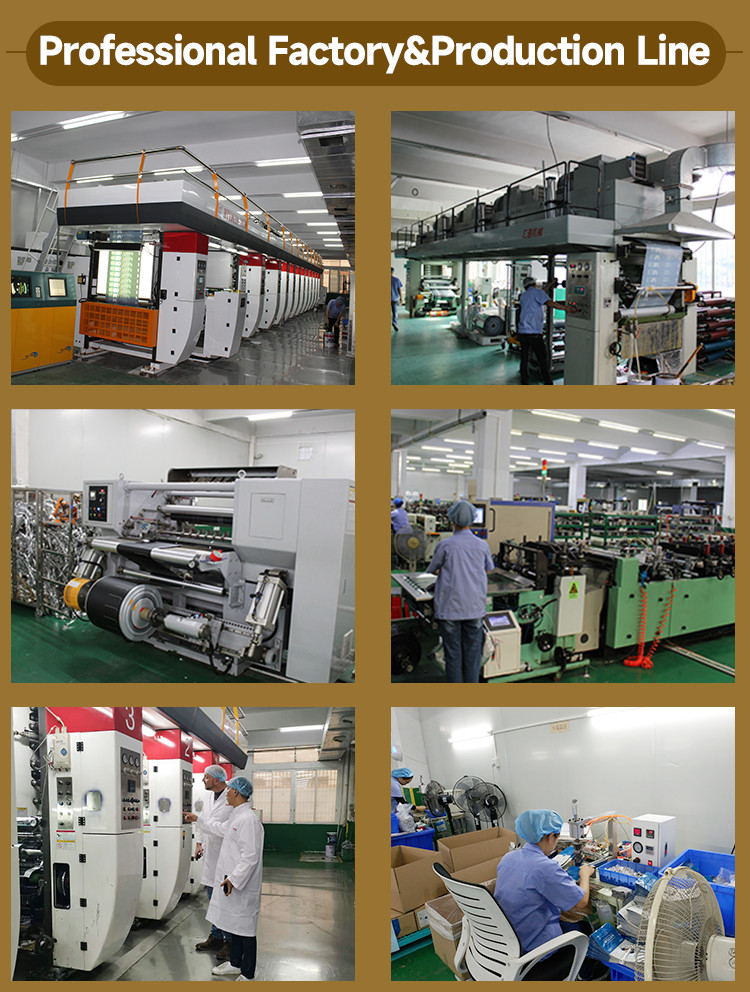Plastic Coffee Bags: A Sustainable Vision for Tomorrow’s Coffee Industry
Introduction:
Plastic coffee bags are spearheading a sustainable vision for the future of the coffee industry. As environmental consciousness becomes integral to consumer choices, these bags have risen to the challenge, revolutionizing coffee packaging practices with a focus on waste reduction, responsible sourcing, and a commitment to a greener planet. In this article, we will explore how plastic coffee bags are leading the way towards a more sustainable coffee industry, setting a precedent for eco-consciousness and positive environmental impact.
1. Waste Reduction through Circular Economy:
Plastic coffee bags are paving the way for a circular economy in the coffee industry. By encouraging consumers to reuse and recycle the bags, manufacturers are reducing waste and ensuring that valuable materials stay in circulation. Innovative collection and recycling programs allow used bags to be repurposed, further minimizing the environmental impact. Embracing circularity ensures that resources are maximized, creating a regenerative system that benefits both the coffee business and the environment.
2. Biodegradable Materials for a Lower Ecological Footprint:
Plastic coffee bags are embracing biodegradable materials sourced from renewable resources. Compostable materials derived from plant-based sources break down naturally, leaving behind minimal ecological impact. These bags provide a sustainable alternative to traditional plastics, reducing the burden on landfills and contributing to a healthier ecosystem. By adopting biodegradable materials, coffee businesses align their packaging choices with a greener vision for the future.
3. Responsible Sourcing and Sustainable Supply Chains:
As sustainability takes center stage, plastic coffee bags are exemplifying responsible sourcing and sustainable supply chains. Manufacturers are working closely with suppliers to ensure that raw materials are obtained ethically and with minimal environmental impact. This commitment to responsible sourcing extends to all aspects of the supply chain, fostering transparency and accountability in the pursuit of a sustainable coffee industry.
4. Eco-Design for Minimal Environmental Impact:
Eco-design principles are guiding the creation of plastic coffee bags with minimal environmental impact. These bags are designed to optimize material usage, reduce packaging waste, and lower transportation emissions. Convenient features like resealable closures enhance consumer usability, contributing to prolonged product life and reduced single-use waste. Eco-designed bags demonstrate the industry’s dedication to responsible packaging practices.
5. Collaborative Sustainability Efforts:
A sustainable future for the coffee industry requires collaboration and shared commitment to eco-consciousness. Plastic coffee bag manufacturers, coffee producers, retailers, and consumers are uniting in their efforts to drive sustainability. Collaborative initiatives include educational campaigns on proper recycling, support for recycling programs, and the promotion of environmentally responsible choices. Through collaboration, the coffee industry forges a path towards a greener and more sustainable tomorrow.
Conclusion:
Plastic coffee bags are championing a sustainable vision for the coffee industry, exemplifying the potential for eco-consciousness, waste reduction, and responsible sourcing. Embracing circular economy principles, biodegradable materials, and eco-design, these bags redefine packaging practices to create a lasting positive impact on the environment.
As the coffee industry continues to evolve, plastic coffee bags will play a central role in shaping a sustainable future. Through collaboration and innovation, the industry can embrace responsible packaging choices and drive positive environmental change. Plastic coffee bags symbolize the transformational power of sustainability in the coffee industry, illuminating a path towards a thriving and eco-friendly tomorrow.















